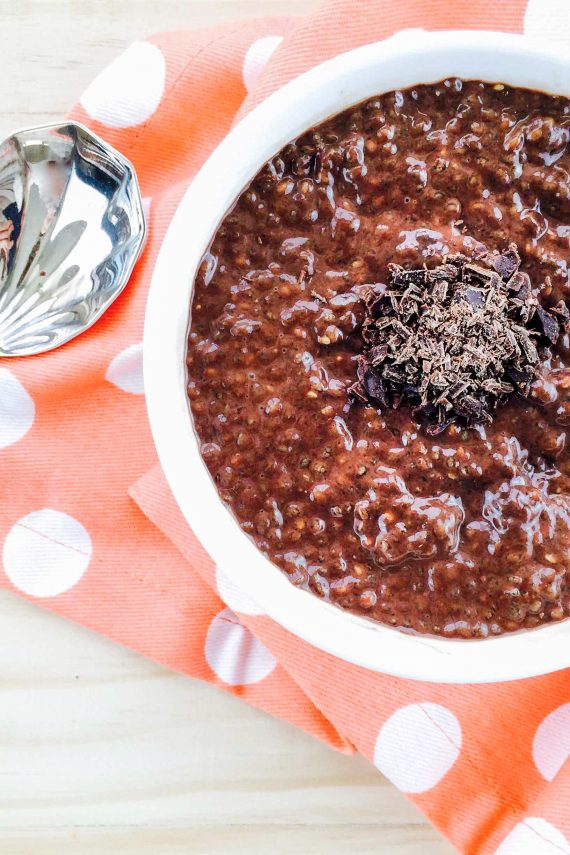How a FODMAP Trained Dietitian Can Help
The low FODMAP diet is complex and can be confusing, which means it can take a while to get your head around the diet. Luckily for us there are FODMAP trained dietitians who can help us transition onto the diet, with fewer hiccups.
Always remember that the low FODMAP diet is a specialised area of nutrition, therefore, if possible, it is important for you to seek help from a FODMAP trained dietitian (1 2). The low FODMAP diet has been designed to help reduce the gastrointestinal symptoms present in people with irritable bowel syndrome (IBS). This means the low FODMAP diet is not appropriate for healthy individuals who do not suffer from gastrointestinal issues.
Here are the reasons why you should seek help from a FODMAP trained dietitian.
Your dietitian can:
1. Check you have had the appropriate medical tests before starting.
It is important that other serious medical conditions, like coeliac disease or inflammatory bowel disease, are ruled out before you start the low FODMAP diet. These diseases can have similar symptoms to IBS, however they need different treatment plans. This means it is important that you are diagnosed with IBS before you start the low FODMAP diet. Your dietitian can refer you to a doctor or gastroenterologist, for any necessary medical investigations.
2. Tailor the low FODMAP diet to meet your needs.
Based on the severity of your symptoms, your dietitian can determine how strict you need to be, while on the low FODMAP diet (3). Additionally, if you are on other medically prescribed dietary therapies (e.g. for coeliac disease or inflammatory bowel disease), your dietitian can help you tailor the low FODMAP diet to suit your needs.
3. Provide you with tips to help you transition to low FODMAP foods faster.
The low FODMAP diet is complicated and it is easy to make mistakes. Your dietitian can give you some tips and guidelines to help you transition to low FODMAP foods, with fewer hiccups, (especially when it comes to choosing safe processed foods). This means you might be able to gain good symptom control in a shorter period of time.
4. Ensure your diet remains nutritionally adequate.
The low FODMAP diet can be very restrictive during the low FODMAP phase. This means that unless you eat a wide variety of low FODMAP foods, your nutrition can become compromised. Your dietitian can provide you with tips and strategies to make sure you focus on the right food groups, to get enough nutrients (3). If you are vegan or vegetarian it is especially important that you seek a dietitian’s help, as many staple vegetarian foods are high FODMAP. When you remove these high FODMAP foods from your diet, you are at risk of significantly reducing your intake of protein, vitamin B12, zinc, and iron (3). Your dietitian will help you develop some daily eating guidelines, to make sure you get the nutrients you need each day.
5. Check for other dietary triggers.
Some low FODMAP foods may contain other common IBS trigger foods that need to be considered, to gain good symptom control. Other common IBS triggers foods include fatty or fried food, caffeine, alcohol, carbonated drinks, insoluble fibre, resistant starches, and spicy foods (4 5). You can find more information on these trigger foods here. Your dietitian will look at your medical history and food diary, before deciding if any other foods need to be removed from your diet.
6. Help make sure you have the right medical team looking after you.
IBS symptoms can be affected by a number of different factors that include stress and emotional health, physiological factors, as well as diet (3). Your dietitian can help you find the right multi-disciplinary team, to make sure you get a comprehensive treatment plan for your IBS.
Are you ready to take control of your gut symptoms?
No thanks, my gut is perfect.
Article continues below
7. Help you accurately test FODMAP food groups.
It is important that you re-challenge and reintroduce the FODMAP foods under the guidance of a dietitian. The dietitian will help you work out the type and amount of FODMAPs you can tolerate, based on your own personal needs and intolerances (2 6 7). This reintroduction phase will help you create a varied diet that limits the FODMAPs you have issues with, and gives you good IBS symptom control (2 6 7). FODMAPs can have a positive prebiotic effect on gut bacteria and gut health, which means it is very important that you try to reintroduce as many high FODMAP foods as possible (2 6 7).
8. Determine a long-term food plan tailored to your needs.
Remember that the strict low FODMAP diet is not a forever diet. Once you have finished re-challenging FODMAPs, your dietitian will help you develop a long term plan that minimizes your IBS symptoms, while maximizing the variety of foods you can eat. This will help ensure that your diet is nutritionally adequate and balanced to achieve long term gut health.
Final Thoughts
A FODMAP trained dietitian can help you successfully identify problematic FODMAP groups, and other food triggers that contribute to your IBS symptoms. Your dietitian can also make sure you have the right team of medical professionals, to help you manage all of your IBS symptoms.
Before booking your appointment with a dietitian, ask them what FODMAP training and experience they have to make sure they can help you with your FODMAP journey.
Low FODMAP Dietitian Databases
Below are some resources to help you locate a FODMAP trained dietitian near you.
Best Low FODMAP Dietitian Directory:
Monash FODMAP
https://www.monashfodmap.com/online-training/fodmap-dietitians-directory/
Other Resources:
Australia – Dietitians Association of Australia: www.daa.asn.au
Canada – Dietitians of Canada: http://www.dietitians.ca/Find-a-Dietitian.aspx
Pasty Catso’s (RD) list of FODMAP trained dietitians: http://www.ibsfree.net
Ireland – Irish Nutrition & Dietetics Institute https://www.indi.ie/find-a-dietitian/nutrition-clinics.html
Kings College London FODMAP Trained Dietitians http://www.kcl.ac.uk
New Zealand – Dietitian’s New Zealand http://dietitians.org.nz/find-a-dietitian/
UK – Kings College London FODMAP Trained Dietitians http://www.kcl.ac.uk
The Association of British Dietitians https://www.bda.uk.com/improvinghealth/yourhealth/finddietitian
USA – Academy of Nutrition & Dietetics http://www.eatright.org/programs/rdnfinder/
Pasty Catso’s (RD) list of FODMAP trained dietitians: http://www.ibsfree.net
If you are struggling to find a FODMAP trained dietitian, let me know at [email protected] and I will see if I can help you find a suitable one.











Leave a Reply